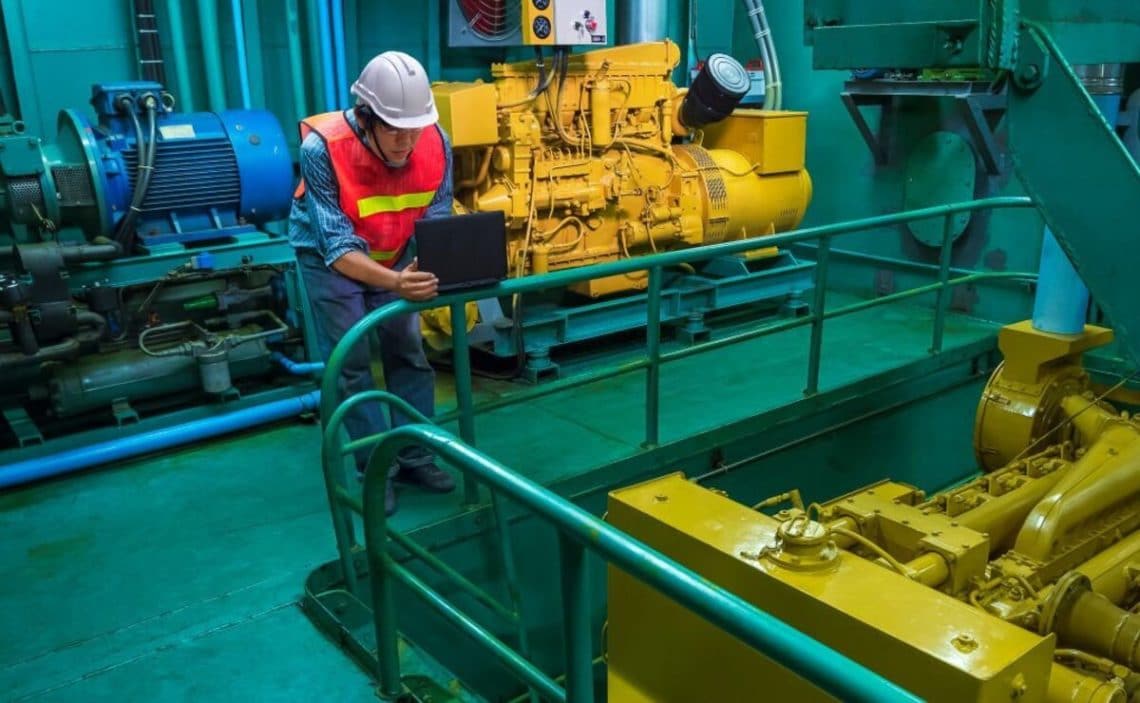Marine engineers are specialist technical professionals who design, develop, build, install, inspect and maintain the propulsion systems, engines, pumps and other pieces of technical equipment that make boats and other maritime vessels function effectively. These guys work on all kinds of ships, from ferries, cargo ships and hovercraft to cruise liners and military vessels, such as frigates, warships and submarines.
Most marine engineers choose to specialise in one particular area. For instance, you might focus your efforts on the maintenance of engines and propulsion systems when ships are in dry dock. Alternatively, you may become an expert marine design engineer, where you’ll spend the majority of your time designing complex machinery using computer-aided design (CAD) software.
Your responsibilities will vary depending on your area of specialism. However, in general you will firstly be responsible for liaising with your client to understand the specific requirements of the project.
Once you have been given the project brief, you will play an integral role in the research, design, development, testing, tweaking, production, installation and maintenance of a mechanical solution which satisfies the project requirements and fits in with rigorous time and budget constraints.
Marine engineering is not just about hands-on technical work, though – senior marine engineers usually have project management and budget control responsibilities, too.
Salary & benefits
Entry-level marine engineers tend to earn between £20,000 and £30,000 per annum. Senior professionals, however, can earn up to £80,000 and beyond. Freelance contractors can earn considerably more.
Working hours
Your working hours will vary depending on the kind of work you are carrying out. For instance, if you’re working on preliminary design work, you may simply be required to work a standard nine-to-five day. However, longer hours are usually more common for engineers who spend the majority of their time working on-site.
Travel is frequent for marine engineers, especially those engaged in specialist inspection and maintenance activities.
Entry
To break into this line of work, a degree in marine engineering would be a great bonus. However, you could also enter this profession with another relevant degree in a subject such as physics, maths, mechanical engineering, naval architecture, or electrical and electronic engineering. It’s also a great idea to get some work experience under your belt before applying for entry-level jobs.
Before you can acquire chartered status, you will also need to obtain a relevant postgraduate degree. However, your employer may sponsor you through this process.
Training & progression
Structured graduate development programmes are offered by many companies. These training schemes involve doing several placements across different departments of the organisation, where you will gain hands-on experience. You’re also likely to receive in-house training and financial support as you work towards gaining incorporated or chartered status as a marine engineer.
Training schemes typically run for between two or three years, depending on company policy and the category of professional accreditation you are aiming for.
As you progress in your career, you can aim for managerial roles within the same company. Alternatively, you could move into the exciting world of naval architecture—although this might require further study.
Freelance consulting is a common option for marine engineers with an established reputation, tons of experience and recognised professional credentials.
Becoming a member of the Institute of Marine Engineering, Science and Technology (IMarEST) may be useful for the purposes of networking and training.

The essential springboard into the job market for school leavers, students and graduates.
The AllAboutGroup have worked across more than 1000 campaigns with HR teams from over 250 firms over the last decade as their partners to help them solve problems across all parts of the recruitment process.


